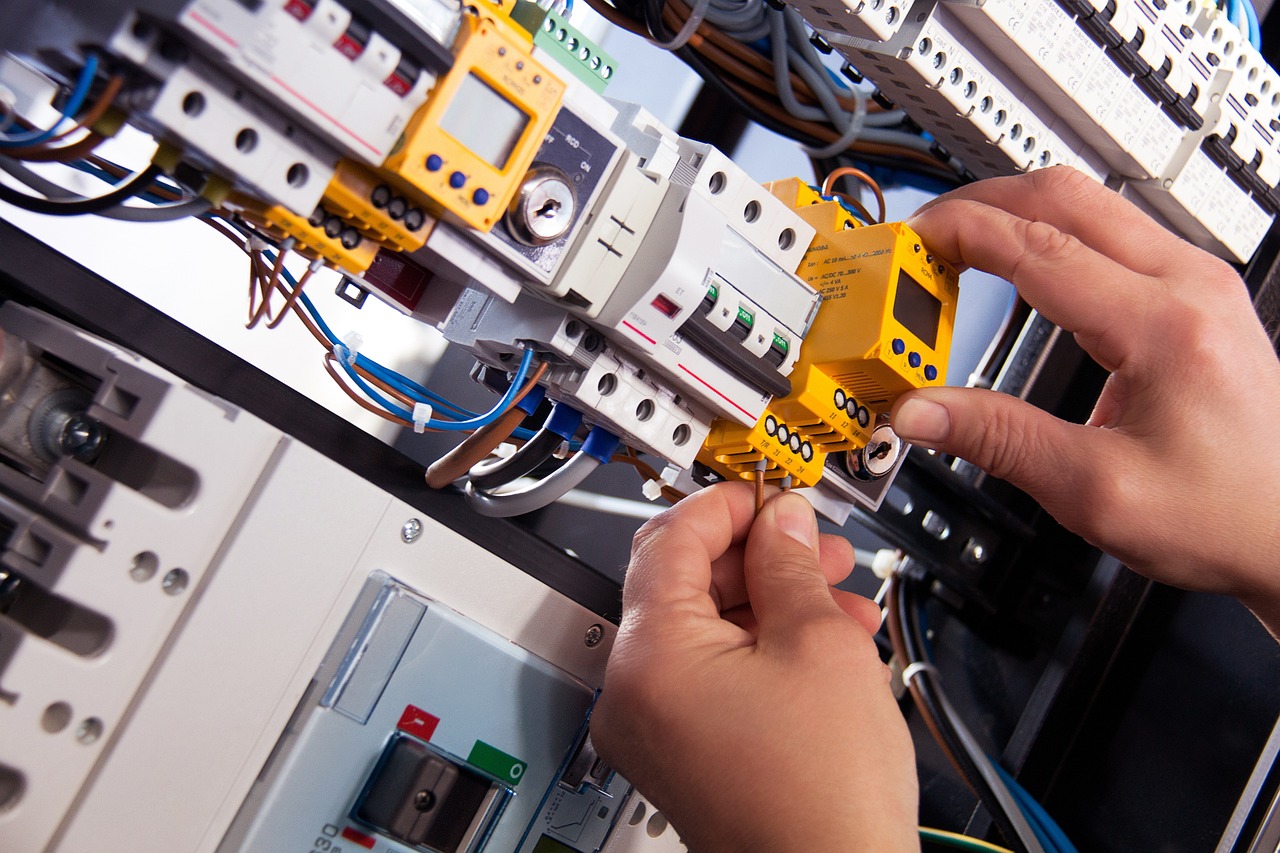Electrical issues, when they arise, are a top priority to address. If not, you run the risk of damaging your high-powered machinery or bringing your business to a halt. Deciding whether to repair or replace wiring in commercial settings is not just a matter of cost, but also safety, efficiency, and futureproofing your business operations. Not all wiring issues require a complete replacement, but you shouldn’t take a shortcut when they do.
The Importance of Commercial Wiring
Unlike residential wiring, commercial systems are designed to handle higher power demands, endure rigorous usage, and comply with stringent safety regulations. Most commercial systems incorporate three-phase power to efficiently accommodate the electrical load of commercial equipment. Instead of simple wall outlets, many large electrical devices require unique outlets or adapters to power them safely.
Commercial buildings often use conduits made from heavy-duty materials like metal, protecting against environmental hazards and wear and tear. This complexity and scale mean that maintaining, repairing, or replacing commercial wiring requires a significant financial commitment and a deep understanding of the system’s intricacies. Faulty or outdated systems can lead to dangerous situations, including electrical fires, so you should never fix complicated issues through DIY methods.
However, even with diligent maintenance, there comes a time when every commercial property owner or manager faces the critical decision: should you repair the existing wiring or replace it entirely? This choice isn’t always clear-cut, but we can help you decide which fix is best for your situation.
Signs You Need to Address Your Wiring
Several indicators suggest your commercial wiring needs attention. Notably:
- Frequent Circuit Breaker Trips: Constantly tripping breakers signal an overloaded system.
- Flickering Lights: Often, this is a symptom of a loose connection, hinting at potential wear and tear or environmental damage.
- Visible Wire Damage: Exposed or frayed wires pose immediate safety hazards and indicate deteriorating wiring.
Making the Decision: Repair vs. Replace
Repair is typically the first step for specific issues within your system. Scenarios where repair might suffice include isolated problems like a single malfunctioning outlet or a particular section of damaged wiring. Just because a fix seems simple and repairable doesn’t mean you should take on the task yourself, however. What might be a simple job for a certified commercial electrician can still be fraught with dangers.
Still, certain situations necessitate a complete system overhaul. This is especially true in older buildings with outdated wiring that risks non-compliance and safety. Replacement offers numerous benefits, including:
- Improved Safety and Security: Upgrading to modern standards reduces the risk of electrical fires and overloads.
- Energy Efficiency: Modern wiring can lower energy consumption, offering long-term savings.
- Support for Technological Advancements and Growth: A new system can better accommodate future growth and technological needs, keeping your property competitive.
It can be tough to know when replacing an entire wiring system is worth it. When safety is threatened, you should never ignore the warning signs. However, there are still considerations regarding the amount of replacement, the efficiency of the new system, and the futureproofing you want to include.
Start by weighing the immediate expense of replacement against the potential savings in energy efficiency, reduced maintenance costs, and increased property value. This cost-benefit analysis can give you an early look at how replacement works within your budget. When you factor in anticipated operational downtime costs and client dissatisfaction, a replacement often looks much more appealing than you would assume at first glance.
If you are unsure about what your commercial property needs and whether a wiring or system upgrade is worth it, contact the Promise Electric team today.



